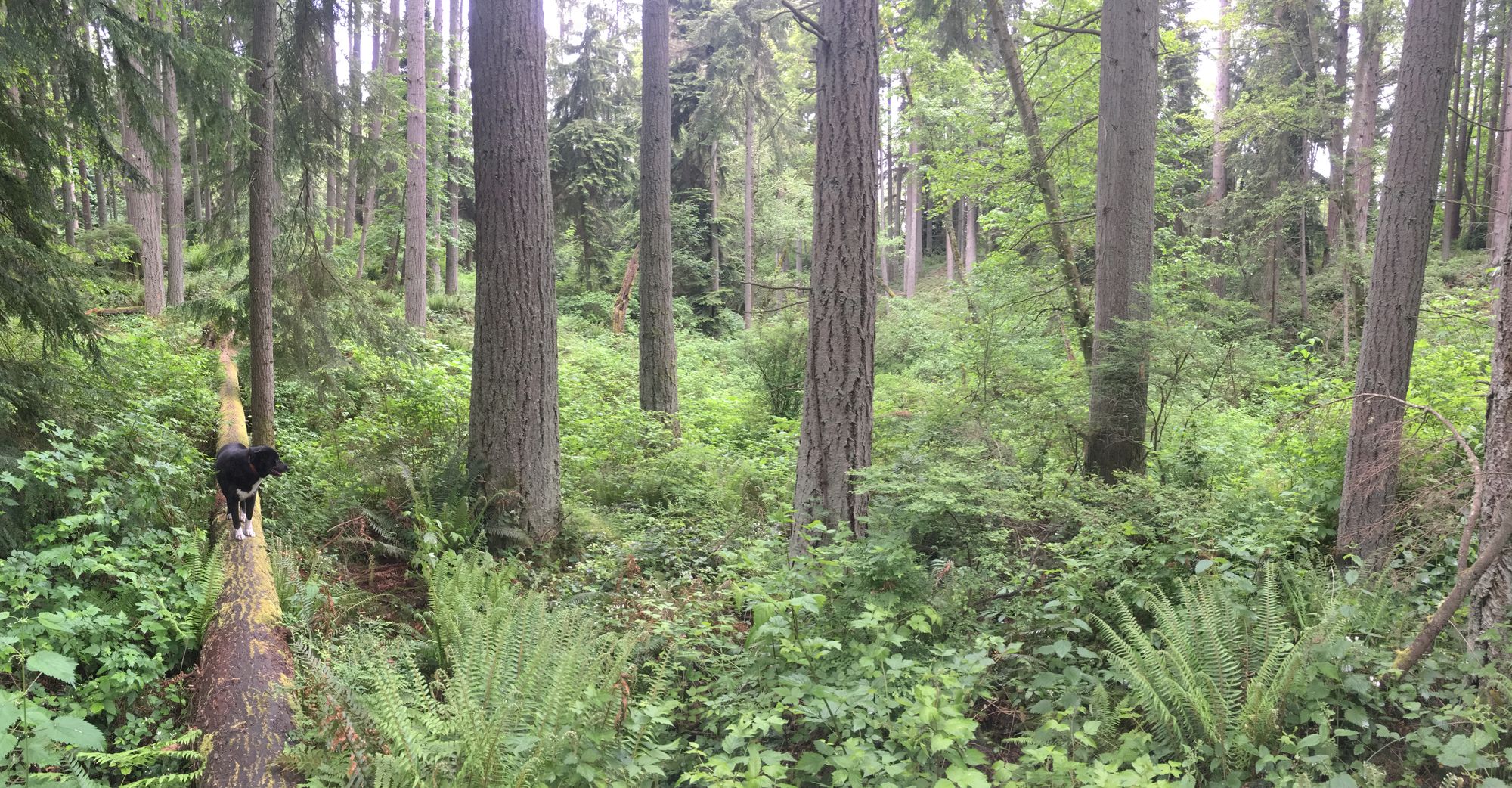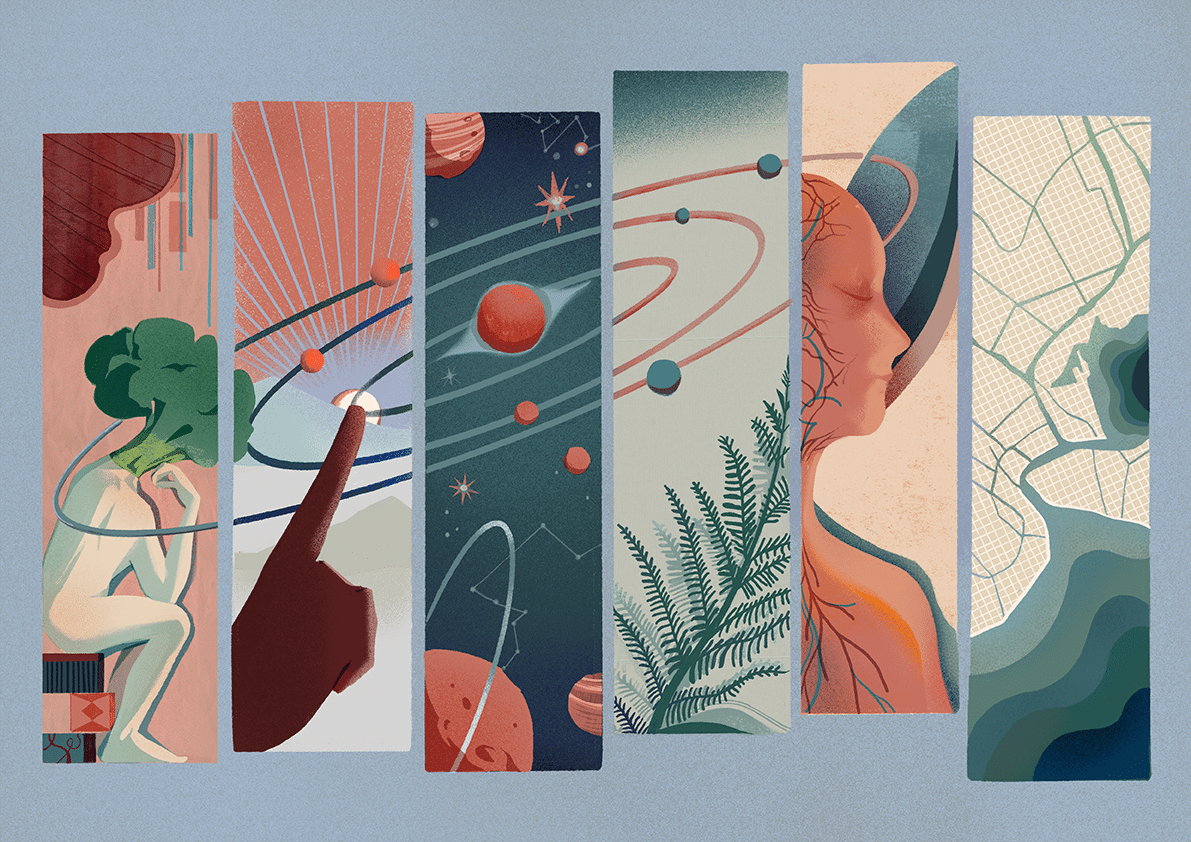Hi there,
Welcome to July. And a happy happy birthday to Benay, my mom!!
I so appreciate your responses to the latest podcast episode I shared.
You can listen to or read the podcast episode here.

Perhaps similarly to you, I've been dipping in and out of reading the news lately ("lately" meaning the past three years).
I've also been in the forest all week with a group of sweet, loud, quiet, incredibly inquisitive, sensitive, smart, and strong young children and three super caring adults.
I've been pushing myself to quiet myself and simply listen to the robins, woodpeckers, squirrels, and humans... to witness the slugs, rabbits, and centipedes... more than simply talk, talk, talk.
I attempt to push myself to stay with witnessing their songs, their questions, their shouts, their cries, their laughter. Observing the rhythms of all that's gathered.
There's a lot that could be said. And there's a lot that could be gathered, listened to, and observed.
In the gathering, observing, and listening, I wonder if there can be a sense of spaciousness? A sense of sinking into the questions? Rather than only rushing – exhaustedly – to the answers?
Can there be space for questions and answers? And questions that roll into more questions?
Three messages I'd like to share that I've gathered and rolling around in my mind and heart...
1
Anne Helen Peterson wrote a recent post for her Culture Study newsletter.
She writes:
As AOC put it in her Instagram stories yesterday, “ultimately, we live in this world and in this time. We have no choice but to engage in it while we’re here. Even running away is a form of engagement. So will your engagement hurt or heal?”

2
adrienne maree brown was recently on On Being with Krista Tippett.
Here's a snippet from their dialogue:
Tippett: At the beginning of that blog post, you put, “a word for white people in two parts” — “part one: what a time to be alive,” which is true and which is another way to frame it, right? And I feel like we should almost put that sentence at the beginning of so many of our conversations: what a time to be alive — that we are in this total paradigm shift, right? And that we are — we are tasked with standing before these existential, potentially transformative junctures for our species.
brown: I mean, this is, to me, the most exciting thing right now, is like, we are aware, if we wake up, we are in a place where we can create so much history and so much change. Everything is falling apart, but also, new things are possible. And Octavia said that “[t]here’s nothing new / under the sun, / but there are new suns.” We are in a time of new suns. We’re in a time of new suns. We have no idea what we could be, but everything that we have been is falling apart. So it’s time to change. And we can be mindful about that. That’s exciting.
Tippett: It’s buckle your seatbelt exciting, right? [laughs]
brown: Yes. It’s like, we are the action heroes. I always say that for organizers, but I’m like, really, to be a human, once you wake up and recognize, oh, I can shape everything. I don’t have to be a victim of someone else’s vision for my subjugation, I actually get to be a powerhouse in the story of my own life and my people’s lives — oh! That’s a different invitation. I would much rather live in that scenario. And so I do. [laughs]
Read or listen to the rest here.

3
I scanned the further resources that Anne Helen Peterson shared at the end of her post and intentionally clicked on the one entitled "A few questions you can ask yourself on hopeless days," written by Garret Bucks for The White Pages newsletter.
Going for questions, before rushing towards answers, remember?
These called to me from his list:
When you think about the larger rot and ache in our country that created and sustains those holes, who is doing the work of building something different, of challenging the political and cultural reality and organizing disconnected people who are dreaming of something better into an organized force pushing for something better?
How can you thank them?
How can you help them?
How can you thank them... how can you help them... the repetition of these two questions through his list offers a rhythm, maybe it's a mantra or a song for us to learn?

Til next time fellow question gatherers,
Cassandra


